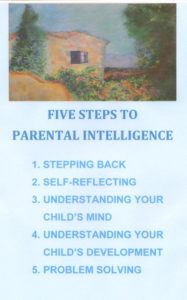Are Your Kids Exhausted?
Exhaustion is extreme mental or physical fatigue, a depletion of resources. If you find your kids are exhausted, there are ways to help them and understand with them what they are going through..
SIGNS OF EXHAUSTION
While the following signs may have many causes they can alert you to childhood exhaustion.
- weariness and fatigue
- drained of energy and vitality
- loss of concentration
- memory loss
- variable moods
- loss of appetite or overeating
- decreased vigilance
- problems with mental and physical health
- problems learning
- irritability with others
SOME FACTS ABOUT EXHAUSTION IN KIDS THAT KIDS NEED TO KNOW
Babies, children, and teens need significantly more sleep than adults to support their rapid mental and physical development. When kids resist sleep and become hyper as the evening goes on they may be showing you and themselves they are overtired.
Kids need to understand the reasons for sleep so they can monitor their tiredness on their own and with your help rather than view bedtime as an unreasonable arbitrary time.
Do your kids argue about bedtimes?
Do they perceive it as punishment somehow?
Do they confuse bedtime with unreasonable parental rules?
It can’t be stressed enough how helpful it is for parents to discuss the reasons for sleep which kids can easily understand and then want to get needed rest. Bedtime routines help kids’ needs for security and emotional and impulse regulation.
How do you explain that in language kids of all ages can understand?
- Share with them the signs noted above that indicate exhaustion.
- Let them know if they have enough rest, they will think better, concentrate easier, enjoy their play because they have more energy, and will get sick less often.
- Let them know kids at different ages require different amounts of sleep to just plain feel good.
- Sleep is your friend, not your enemy.
- Sleep lets you use your intelligence well.
- Sleep improves your memory.
- It’s easier to get along with others when you feel rested.
- Sleep increases alertness.
- It’s okay to sleep late when you’re a teen on weekends. It’s a sign you’re not getting enough sleep during week days.
- The typical high school teen naturally falls asleep around 11 so it shouldn’t be a source of argument, but something to figure out if daily life requires the teen to get up early so they don’t get about nine hours of sleep at least each night depending on how much physical activity they enjoy.
- If parents argue a lot and kids fear their parents’ marriage may be falling apart, they may have difficulty sleeping due to imagined consequences. Is this happening in your home.
Dialogue with Your Kids to Find Schedules that Work for Them
This is about having conversations with your kids.
Increasing dialogue about what goes into the schedule of each day helps parents realize what their kids feel is important and needs to be included in their daily routines. This isn’t a time for parents to prescribe what kids should do but for kids to take a look at their pleasures and responsibilities and figure out how to fit everything in.
Parents and kids can learn from each other, share their ideas and points of view, not make this a battleground where someone wins and someone loses. Schedules are to make lives flow each day and lessen stress, not lead to exhaustion because no one is talking about what kids think, feel, and need from their point of view as well as hear their parents points of view.
DAYDREAMING HAS ADVANTAGES that help our minds rest.

Discuss how “Idle time” may be important time for DAYDREAMING rather than always expecting each other to be always on the go. Let kids know that you know and want them to know the advantages of daydreaming.
1. It’s an opportunity to rehearse imaginary situations that lead to problem solving strategies.
2. It gives you time to consider alternative options when making plans.
3. It helps you discover unanticipated consequences for your actions.
4. It helps you be prepared to take on new challenges.
5. It gives time to learn to tolerate mistakes and failures.
6. It’s time just to plain imagine the future.
7. It is not a sign of exhaustion, it’s a time of discovery
WELL-RESTED KIDS DEVELOP CRITICAL THINKING SKILLS. WHAT ARE THEY?
- empathy
- frustration tolerance
- flexibility
- identifying and clarifying and then expressing ideas
- taking different perspectives so you can think through the impact of your actions
- weighing options for future problem solving as well as new adventures
- thinking rationally, even when upset
- managing irritability, disappointment, and anxiety
- thinking before responding so you can estimate the likelihood of different actions
USE THE PARENTAL INTELLIGENCE WAY TO DISCUSS AND UNDERSTAND EXHAUSTION

These 5 steps help you unlock your Parental Intelligence.
This sums up all the above. It means as parents you take five steps to understanding your child’s problem with exhaustion, discovering what’s on their minds about what is interfering with needed sleep, and build parent-child bonds.
For complete details check out this link: https://lauriehollmanphd.com/books/unlocking-parental-intelligence/